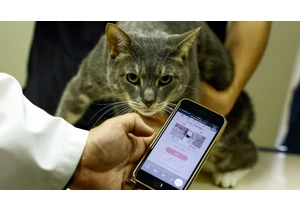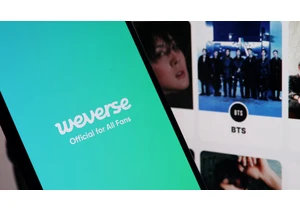Critically speaking, Humane’s AI Pin is not off to a great start. Many have condemned the device as unnecessary and cumbersome; YouTube review legend Marques Brownlee ">deemed it “bad at almost everything it does, basically all the time.”
But more concerning than the device’s lackluster performance is its promise of a future that is well beyond what its technology can accomplish in the present. In that fashion, Humane’s AI Pin hearkens back to the erstwhile software darling General Magic, with similarities in each team’s culture, vision, and development. Both companies started from people who had worked at Apple, and who brought Apple’s culture—including its blind spots—into their visions (and subsequently their products) to underwhelming, rushed product launches.
Apple figured out early on that the industrial and product design of hardware matters, and that the integration of hardware and software can make computers more appealing to a broader group of people. But Apple sometimes has problems finding a market for its future visions—mostly because these are often hardware-centric, and Apple’s products thrive in a market when third-party applications are available for its devices. Much of Apple’s success stems from its relationships with a vast network of developers who create applications and content for people to use with Apple’s products.
It isn’t just talent that moves around when people shift jobs, it’s culture, too. Startups mix people from many different corporate cultures, but ultimately it’s leadership that sets the cultural tone. Leaders form the power and decision structure of new startups. As such, Apple’s visionary culture often moves with the people who leave Apple to create new companies. It was evident at General Magic, and it’s showing up at Humane with two ex-Apple leaders guiding the development and design of the AI Pin.
General Magic was an early 1990s Silicon Valley startup founded by Marc Porat and members from the original Apple Macintosh team, who left Apple to work together to “create what came after the personal computer.” They aimed to reinvent telecommunications using a new technology that they called Magic Link, which was developed as a next-level communications device and network that would condense analog desktop clutter. The team modeled Magic Link’s interface to look and behave in many ways like the Mac, but smaller and with more focus on communications.
Similarly, the Humane AI Pin wants to be a smaller version of the iPhone, but one that is focused on seamless communications. Previously, Humane founder Imran Chaudhri was a designer at Apple for 19 years and Bethany Bongiorno was a director of software engineering for 8 years, managing iOS, Mac OS, and the original iPad products. Chaudhri is renowned for designing the app grid layout on the iPhone, an interface that enables people to view and organize their apps but fails when it comes to app interoperability and visibility. (Except for the apps in the dock, many require a few flicks of a finger to access, which can put the kibosh on UX fluidity.)
It seems that Humane’s AI Pin is attempting to solve the iOS flat organization and interoperability problem by removing visual organization and order, and instead using AI—specifically, voice command and data collection—as the glue to condense all the various apps together. But AI isn’t robust enough to do this well yet, and as such the AI Pin still requires an app to offer visualization and contextual understanding to what has been done with the AI while wearing the pin.
The postmortem documentary General Magic detailed the history of Magic Link and illustrated the huge gap between what was envisioned by the founding team and what was actually released. General Magic was constrained by the tools of the time, and the initial sketch and vision (shown as a hardware idea) was something in a form factor akin to today’s smaller iPhones. The Magic Link’s hardware, software, and internet limitations combined to create a product that was sold as a future vision but was created with the technology that was available for production at the time, which was substantially different.
While the product team believed Magic Link was not ready for market, the business side pressured the team to ship. It isn’t known whether Humane’s AI Pin had the market pressure from partners to ship, but it clearly wasn’t ready, its biggest flaws being the AI assistance that lags and a battery that even with a built-in spare can’t hold up to the product’s “ambient intelligence” promise.
The General Magic team wanted to find a mass audience, but mostly relied on their own intuition, which in part originated from the culture developed by the late Apple CEO Steve Jobs. Jobs’s ethos that “people don’t know what they want until you give it to them” and “we built it [the Mac] for ourselves” shaped how Apple employees thought about products and, more importantly, people.
To that end, General Magic did have a “couch potato” target audience—referred to, not so subtly, as “Joe Sixpack”—but they didn’t take that mandate seriously. Apple could afford to adhere to Jobs’s disregarding doctrine because Apple had great hardware, company infrastructure, software partners and apps, an educational market, revenue, and many other pieces that together enabled its success; General Magic didn’t. The Magic Link was a failure.
Humane’s AI Pin, with a large out-of-box cost and monthly subscription fees, seems to suffer from a similar style of wishful thinking: that is, it was made by people whose long careers in tech have prevented them from realizing that their utopian visions are still many, many miles ahead of everyone else’s reality.
Overall, the tech industry seems to be focused on early releases with the promise of future improvements down the line. Many of us tolerate premature tech for the payoff it can give us, but ultimately we do need things to work for us—and that requires these companies knowing our needs (which is not the same as tracking us).
True useful innovation starts with a company understanding its internal cultural limitations and transcending them, as well as having qualitative researchers spend time with potential customers before doing any engineering or design. End products like Magic Link and Humane’s AI Pin contain each company’s culture embedded within them, along with Apple’s legacy values. And as the Magic Link showed, that ideological blend can ultimately be a curse.
After its disappointing product launch and reviews, there are rumors that Humane is for sale. Chaudhri and Bongiorno clearly had a creative and broad vision for the AI Pin’s future, which initially gained them partners, funding, and an $850 million valuation. But the product didn’t work. In the growing genre of “personal AI” product development, things have to be useful to people in the present.
<hr class=“wp-block-separator is-style-wide”/> https://www.fastcompany.com/91130458/humanes-ai-pin-could-be-a-repeat-of-the-doomed-magic-link-of-the-90s?partner=rss&utm_source=rss&utm_medium=feed&utm_campaign=rss+fastcompany&utm_content=rss
Ak chcete pridať komentár, prihláste sa
Ostatné príspevky v tejto skupine

NASA has set its

Mayumi Kitakata frets about the health and well-being of Chi, her stoic housemate who enjoys treats, indulges a bit too much in the catnip, and about 14 is getting on in years for a feline.

Most of the tools we talk about tend to be things that make our own lives a little bit easier—often in some small but significant way.
Today’s tool takes a twist. It’s a free, o

Pop star Ariana Grande is joining Weverse, a superfan platform owned by

Last October, X began experimenting with various tiers of

After the U.S. Justice Department and the Federal Trade Commission reached an agreement to open

Pope Francis challenged leaders of the world’s wealthy democracies Friday to keep human dignity foremost in dev
